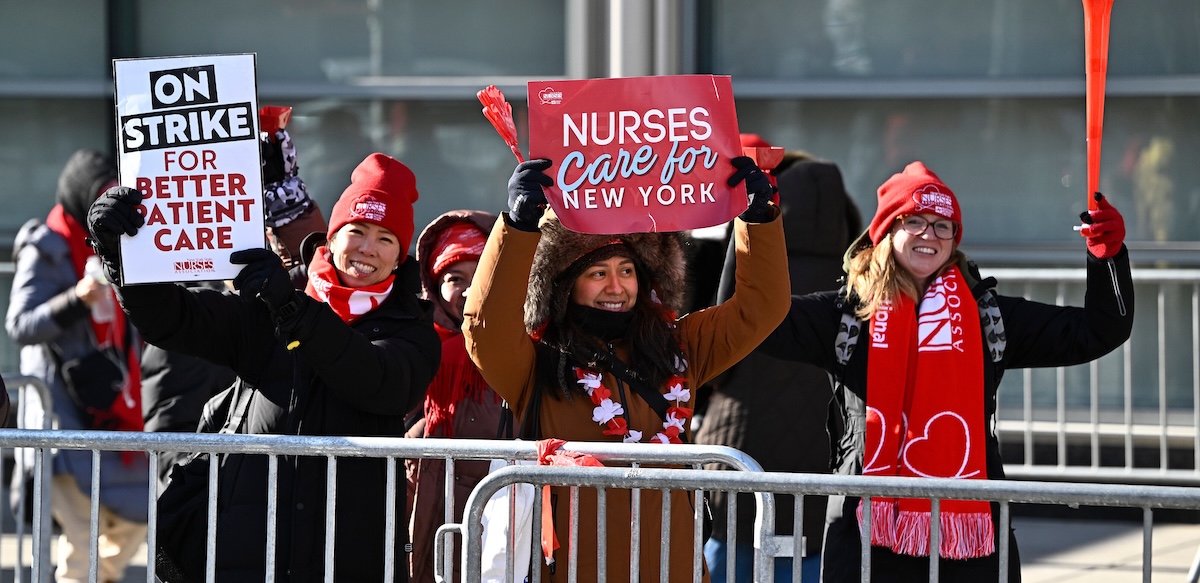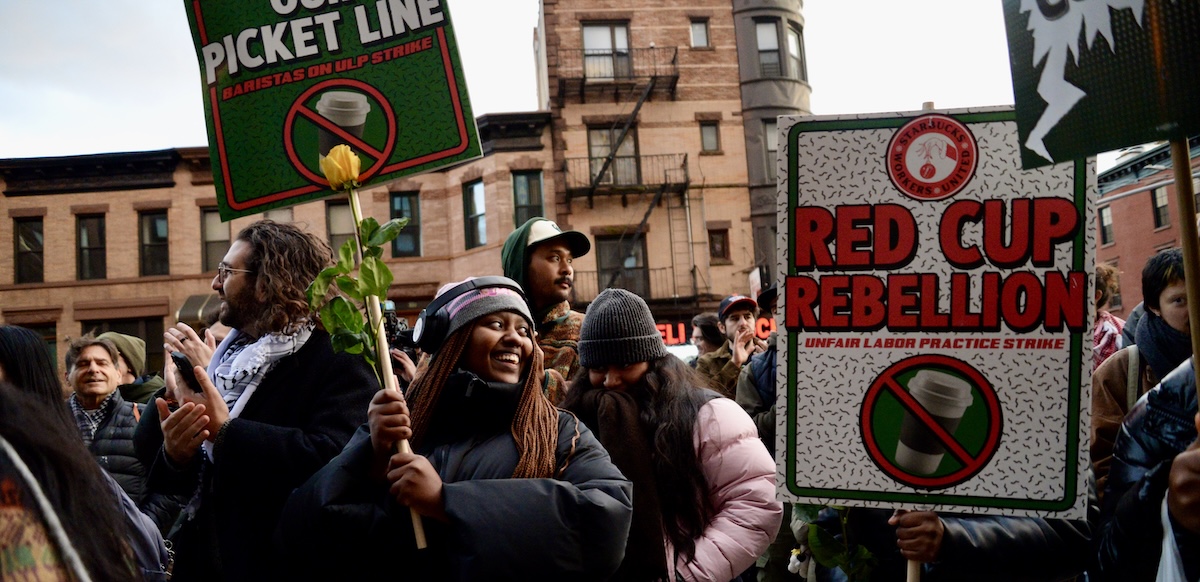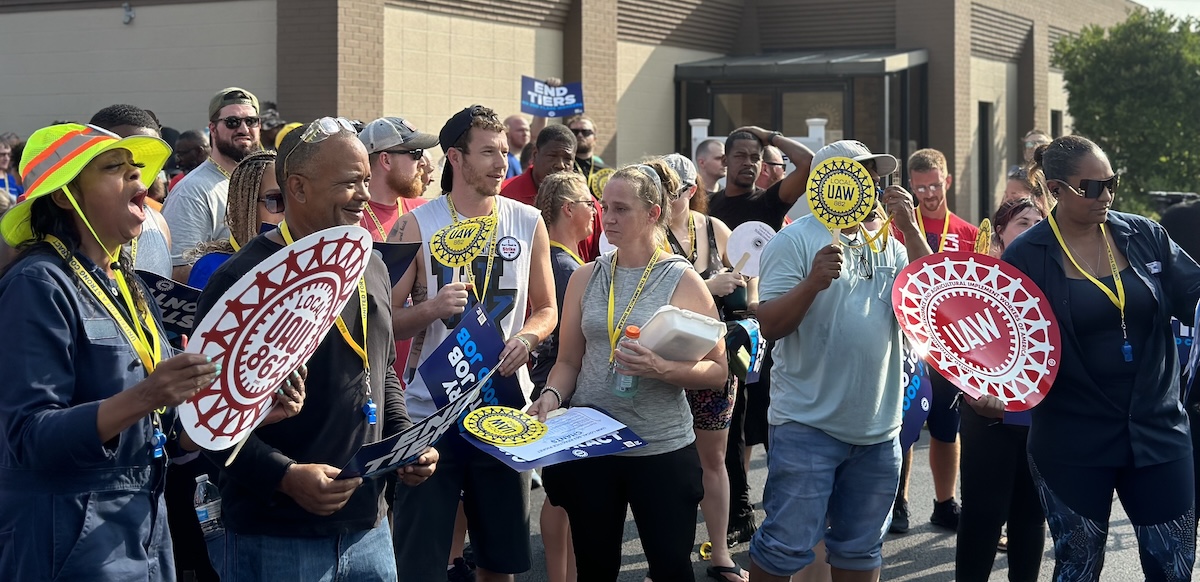Delete the Starbucks App Now, Say Striking Workers
Starbucks barista Christi Gomoljak has been on strike for 80 days.
Managers at her Disney store in Anaheim, California had taken away the workers’ restroom without consultation. “There was a note on our break table that we were losing our employee restroom,” she said. Workers would have to go elsewhere in the busy theme park.
Management also accused workers of not really being sick when they took their sick leave, said Gomoljak. On top of that, “We were told by our store managers not to talk to each other.






You must log in or register to post a comment.